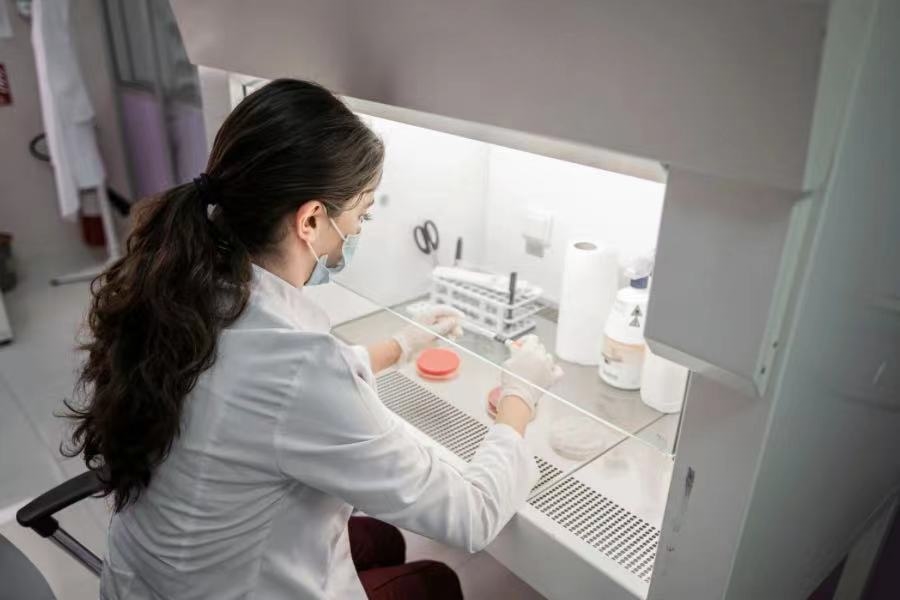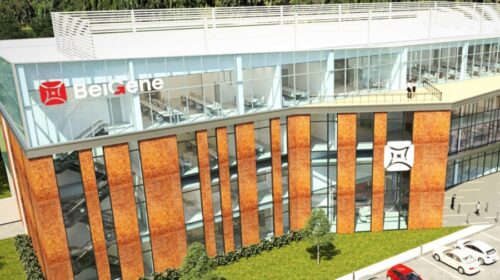Laekna IPO hopes to hitch a ride on Novartis ties

The producer of drugs licensed from third parties is banking on ties to the Swiss drug maker, as one of its key products nears the regulatory finish line
Key Takeaways:
- Laekna has two main products, including one expected to file for approval in China and the U.S. at the end of this year
- The company has made its second filing for a Hong Kong IPO, even as investor appetite remains uneven for such biopharmaceutical stocks
By Ellie Si
Innovative cancer drug maker Laekna Inc. was hoping to ride a wave of strong investor sentiment toward innovative drug makers when it made its first filing for a Hong Kong IPO last June. But that application failed to get a final green light, causing it to lapse.
Now, the company has filed a new prospectus with updated financials. The only problem is, the wave of investor enthusiasm it was hoping to ride to success has faded, though the tide could be turning positive again.
Still, the current choppy market could make Laekna a hard sell as the latest in a growing supply of revenue-less biotech companies seeking Hong Kong listings. Each of those is trying to tell investors why it’s special, and Laekna is no exception. In addition to its two most advanced drugs, the company tells a unique story in its strong ties to Swiss drug maker Novartis (NOVN.SWX).
The company’s latest prospectus shows it was founded in 2016 as a developer of therapies for cancer and liver fibrosis. Its current pipeline is led by two key products licensed from Novartis, whose ties with Laekna we’ll return to shortly. One of those drugs is expected to file for New Drug Approval (NDA) in the fourth quarter of this year in both China and the U.S., and might be used in conjunction with chemo therapies for cancer treatment.
Not much has improved for the company financially since its original filing. It lost a combined 1.53 billion yuan ($222 million) in its most recent two financial years. And even after excluding fair-value changes of financial instruments, its non-GAAP adjusted losses still totaled 620 million yuan, mostly the result of rising administrative and R&D costs. Those costs continue to pile up as its first products near the finish line, surging by 81% last year to 310 million yuan.
The company was sitting on around 320 million yuan in cash and cash equivalents at the end of last year, roughly equal to its annual R&D expenses. That means its failure to cross the IPO finish line this time could put its future into serious question – a topic potential investors are certain to raise as it makes its new listing attempt.
The good news for Lakena is biopharma stocks in Hong Kong have bounced back substantially since hitting a bottom late last year. That could play to Laekna’s advantage if it can catch the rising tide at the right time.
Novartis connections
Besides its two key products, Laekna has 13 other candidates in its pipeline. The most advanced of its two key products is LAE002, an adenosine triphosphate (ATP) competitive AKT inhibitor to help treat ovarian, prostate and breast cancers. The drug is among just two AKT inhibitors worldwide to enter registered clinical trials, according to third-party data in the prospectus, representing Laekna’s best hope to start bringing in some revenue soon.
The other key product is LAE001, an androgen synthesis inhibitor with potential applications for prostate cancer treatment. Third-party data in the prospectus says LAE001 is the only dual inhibitor of CYP17A1/CYP11B2 to be used in prostate-cancer clinical trials worldwide.
It’s noteworthy that both products, as well as two other cancer treatments, LAE005 and LAE003, are all being licensed by Laekna from Novartis. Such a flow is the opposite of more typical collaborations that see overseas pharma giants license drugs developed by small, dynamic Chinese companies without the resources to take their products global.
But Laekna has flipped the script in its collaboration with Novartis, taking products that were already in the late stages of development and investing heavily in R&D to bring them to market.
LAE002 is a good example. Laekna acquired the drug from Novartis in 2018 when it had already gone through 11 clinical trials with multinational drug giant GlaxoSmithKline (GSK.L) to prove its safety and efficacy. The drug showed anti-cancer potential in stages 1 and 2 of Novartis’ clinical trials targeting platinum-resistant ovarian cancer (PROC).
Taking over development of a promising drug at such late stages raises the success rate and can help a company like Laekna bring a product to market faster. One downside is the lack of chance to prove its own R&D capacity, especially for drugs at the early development stage.
While it’s clear that Laekna can benefit from this kind of relationship, Novartis’ motivation is less obvious. A closer look at the prospectus shows many people at Laekna have ties to the Swiss giant. Chairman Chris Lu worked in Novartis for more than 10 years, rising through the ranks to become administrative director responsible for drug research before he left. The company’s executive director and senior vice president Xie Ling, and executive director and chief science officer Justin Gu also did tenures at Novatis.
Pharmaceutical stocks rebound
New drug makers – especially ones without any revenue yet – still face an uphill climb getting onto investor radar screens in the current climate. After Hong Kong made an exception to its existing rules to allow such companies to list in 2018, many such drug makers assumed they could easily raise money from investors salivating at the China growth story.
But many of those saw their stocks fall below IPO prices over the past two years due to lack of investor confidence and also too many companies with similar stories to tell. Things began to improve at the start of the year, with some pharmaceutical exchange-traded funds (ETFs) in Hong Kong rising by nearly 60% between October and January.
Other drug makers flocking to Hong Kong in search of funds during that time include names like Luzhu Biotech, Visen Pharmaceuticals and Kelun-Biotech. Listed companies such as Jacobio Pharmaceuticals (1167.HK), New Horizon Health (6606.HK) and Ascentage Pharma (6855.HK) have also seized that window, raising major new funds via share placements to top up their coffers.
Laekna last raised $61 million in its D-series fundraising last April, pushing its valuation up to around 3.7 billion yuan. Its peer Lepu Biopharma (2157.HK) is now valued at nearly double that, at HK$8.6 billion, after securing approval for its first product in the third quarter of last year and raking in 15.6 million yuan in sales. Laekna may be hoping it can match that level if it can get speedy approval for LAE002 and start reaping its own first revenues later in 2024.
To subscribe to Bamboo Works weekly free newsletter, click here





